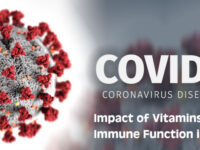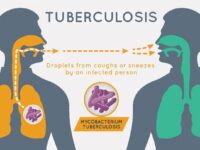Many people don’t recognize the symptoms of Chronic Obstructive Pulmonary Disease (COPD) until later stages of the disease. Sometimes people think they are short of breath or less able to go about their normal activities because they are “just getting older.” But shortness of breath is never normal. If you experience any of these symptoms, or think you might be at risk for COPD, it is important to discuss this with your doctor.
COPD is actually an umbrella term that includes
Emphysema
Chronic Bronchitis
Asthma
Symptoms of COPD
- Chronic cough
- Shortness of breath while doing everyday activities (dyspnea)
- Frequent respiratory infections
- Blueness of the lips or fingernail beds (cyanosis)
- Fatigue
- Producing a lot of mucus (also called phlegm or sputum)
- Wheezing
If you’re willing, there are many ways to treat and reduce your risk of chronic obstructive pulmonary disease (COPD) with your own efforts and natural treatment. But first, you must realize you have COPD symptoms to begin with — then you can pinpoint exactly how to treat them.
Natural Treatments for COPD Symptoms
1. Avoid Smoke in Every Way
The most essential step in conventional and natural treatment plan for COPD is the same stop any and all forms of smoking. You should also avoid air pollution as much as possible. If you’re not a smoker, then you definitely need to avoid places where others smoke.
2. Stay Active
Staying physically active is the second most important thing you can do at home to help manage symptoms of COPD. There are techniques for breathing that can help you breathe more efficiently with COPD. These breathing techniques can also help improve breathing for people with asthma as well as people who don’t currently have lung issues but want to optimize their breathing.
3. Eat Right
A healthy diet can help manage and improve COPD symptoms. Some foods in particular should be mainstays when it comes to an anti-COPD diet while others should be majorly or entirely avoided.Your diet should definitely have plenty of fresh vegetables and fruits to ensure you’re getting lots of vitamins, minerals and fiber. Citrus fruits are especially helpful because they contain quercetin.
If you’re suffering with COPD symptoms, you definitely want to steer clear of conventional dairy since pasteurized dairy is mucus-producing and can plug the airways in the lungs.
4. Increase Water Intake Inside and Outside the Body One of the common and frustrating COPD symptoms is having mucus collect in your airways. This mucus can be difficult to clear and result in persistent and uncontrollable coughing. One internal way you can improve this mucus problem is by drinking plenty of water throughout the day. Drink at least eight glasses of water daily to thin mucus and stay hydrated.
5. Exercise When you’re having trouble breathing, exercise might seem like a terrible idea, but being sedentary won’t do anything to help your COPD symptoms. By regularly getting exercise, especially cardio workouts, you can strengthen your respiratory muscles and improve your overall endurance.
6. Use Eucalyptus Oil
Eucalyptus oil can be very helpful for people with COPD. A study in Respiratory Research showed that cineole, the main constituent of eucalyptus essential oil, actually reduced exacerbation’s in people with COPD. It also reduced dyspnea (shortness of breath), and improved lung function as well as health status overall. Furthermore, the research suggested that cineole is an active controller and reducer of airway inflammation in COPD.
7. Avoid Cold and Crowds When you have COPD symptoms, it’s important to avoid things that make them even worse. I already told you that smoke and pollution are absolutely key to avoid. Another thing to be aware of is the fact that cold air can trigger bronchospasm, a sudden constriction in the muscles of airway walls that leads to shortness of breath. If the weather is really chilly, it’s a smart idea to avoid or reduce your time outdoors. You can also help your symptoms by putting on a face mask before going out into very cold temperatures.
8. Develop Good Medication-Taking Habits While your doctor is the one who decides which medications you should take, your actions at home can ensure that your treatments are as effective as possible. Before you leave your doctor’s office, be sure that you understand why you’re taking the COPD medications you’ve been prescribed.
9. Reduce Stress
Stress can exacerbate COPD symptoms like shortness of breath, so it’s important to manage the level of stress in your life. You cannot avoid all stress, but you can work on reducing the stressors you’re exposed to and make an effort to practice being more calm and relaxed. Taking some time each day to unwind, both physically and mentally. You can relax by napping, listening to soothing music
10. Protect Yourself
When you have COPD, it’s important to avoid situations that can aggravate your symptoms. Cold air can trigger bronchospasm, a sudden constriction in the muscles of airway walls that leads to shortness of breath. Avoid going out in the cold if possible, or put on a cold-air face mask before leaving the house. Respiratory infections can cause COPD symptoms to worsen, so stay away from crowds if possible.If you must be in a crowded area.
Sources
http://www.healthline.com/health/copd
http://www.nhs.uk/Conditions/chronic-obstructive-pulmonary-disease/Pages/Introduction.aspx
http://www.healthline.com/health-slideshow/copd-home-remedies
http://www.lung.org/lung-health-and-diseases/lung-disease-lookup/copd/symptoms-causes-risk-factors https://draxe.com/copd-symptoms














